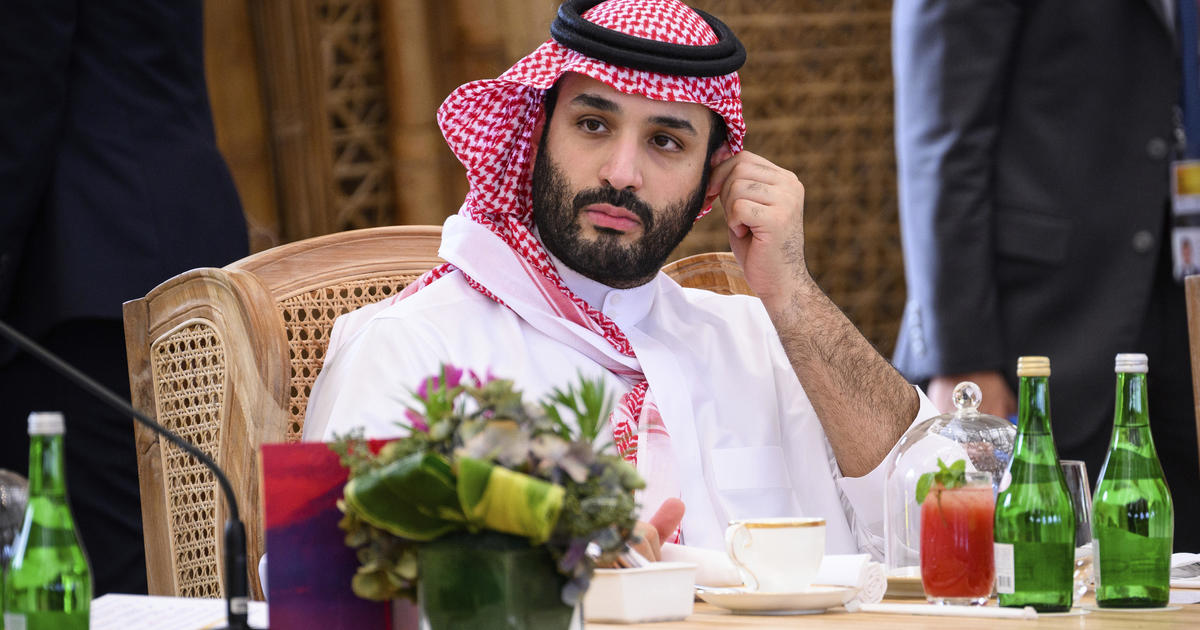Saudi Arabia’s crackdown on freedom of expression is evident in the case of Mohammed al-Hazza, a Saudi artist sentenced to 23 years in prison for allegedly insulting the kingdom’s leadership through political cartoons and social media posts. This harsh sentence, following a re-opening of the case just as he was about to be released after an initial six-year sentence, highlights the ongoing concerns about human rights under Crown Prince Mohammed bin Salman’s rule. The incident raises serious questions about the independence of the Saudi judiciary and its willingness to suppress any form of dissent, even artistic expression. The lack of transparency and due process in al-Hazza’s case underscores a wider pattern of repression against those who criticize the government. This case isn’t an isolated incident; it represents a larger systemic issue within the country’s justice system. The seemingly arbitrary nature of the charges and the extended sentence serve as a chilling warning to others who may consider expressing critical views.
The Arrest and Trial of Mohammed al-Hazza
The Initial Arrest and Charges
Mohammed al-Hazza, a 48-year-old father of five, was arrested in February 2018 during a violent raid on his home. Security forces reportedly ransacked his studio, seizing his artwork and personal belongings. The charges against him stemmed from political cartoons he created for the Qatari newspaper, Lusail, and social media posts deemed “hostile” to Saudi Arabia and supportive of Qatar. These actions occurred in the context of a diplomatic dispute between Saudi Arabia and Qatar that involved severing ties for almost four years before relations were restored. The specific nature of the “offensive” cartoons and “supportive” posts hasn’t been publicly disclosed, raising concerns about the lack of transparency in the legal process. This opaque nature contributes to a sense of fear and self-censorship amongst Saudi artists and citizens in general.
The Shifting Sentence and Concerns over Due Process
Initially sentenced to six years in prison, al-Hazza was nearing release when the case was unexpectedly reopened, resulting in a significantly harsher sentence of 23 years. This abrupt change raises serious concerns about the fairness and impartiality of the Saudi judicial system. The lack of explanation for this dramatic increase in his sentence suggests that due process may have been severely compromised. His sister, Asrar al-Hazza, speaking from the United States, expressed deep dismay and questioned the legitimacy of the extended prison term. The Saudi government’s lack of comment further compounds the lack of transparency and accountability surrounding the proceedings, fueling suspicions that the case may be politically motivated rather than rooted in the genuine application of justice. Such arbitrary decisions are characteristic of authoritarian regimes seeking to suppress any semblance of dissent.
The Broader Context of Repression in Saudi Arabia
Crackdown on Freedom of Expression
Al-Hazza’s case isn’t an isolated incident but rather part of a broader pattern of repression targeting individuals who criticize the Saudi government, even through artistic expression. Human rights organizations like Amnesty International and ALQST have documented numerous instances of lengthy prison sentences imposed on those expressing dissenting views online or engaging in any form of political activism. The Specialized Criminal Court, established to deal with terrorism-related cases, has been criticized for its lack of independence and its tendency to convict individuals based on vague charges relating to national security. Such cases of unfair trials and politically motivated prosecutions undermine the very principles of justice and human rights.
The Role of the Specialized Criminal Court
The Specialized Criminal Court’s involvement in al-Hazza’s case exemplifies broader concerns over its role in the Saudi judicial system. Created to handle terrorism-related matters, the court has increasingly been used to prosecute those accused of violating vague national security laws, often resulting in trials lacking transparency and fundamental due process guarantees. Critics highlight this overlap in jurisdiction and its disproportionate use against political dissidents. The court’s decisions lack clear justification or substantiation, giving the appearance of arbitrary sentencing. It’s this ambiguity and inconsistency that cultivates a climate of fear, discouraging freedom of speech and hindering the potential for legitimate political expression and advocacy. This lack of accountability, further supported by the lack of official responses regarding such accusations, undermines trust in Saudi Arabia’s claims regarding legal reform and human rights.
International Implications and Reactions
International Condemnation
Al-Hazza’s sentencing has drawn international condemnation from human rights groups and activists globally. These groups are raising concerns about the deterioration of freedom of expression under Crown Prince Mohammed bin Salman’s rule. While Saudi Arabia is attempting to portray itself as reforming and more open to the international community, incidents like this directly contradict those efforts, emphasizing the gulf between rhetoric and reality. International organizations are issuing statements expressing grave concern about the increasing restrictions imposed on Saudi artists, journalists, and activists.
Impact on Saudi Arabia’s International Image
The case has undoubtedly impacted Saudi Arabia’s international reputation, undermining efforts to present itself as a modernizing nation committed to respecting human rights. The blatant disregard for fundamental rights and freedoms poses a major obstacle to further international engagement, causing skepticism regarding Saudi Arabia’s genuine commitment to reform. While there have been positive steps toward liberalization, these improvements are frequently overshadowed by repressive measures.
Takeaway Points
- The sentencing of Mohammed al-Hazza underscores the significant restrictions on freedom of expression in Saudi Arabia.
- Al-Hazza’s case showcases the lack of transparency and due process within the Saudi judicial system.
- The ongoing crackdown on dissent raises serious concerns about human rights under Crown Prince Mohammed bin Salman.
- This case has negative implications for Saudi Arabia’s international image and efforts toward liberalization.
- The international community should continue to pressure Saudi Arabia to uphold human rights and protect freedom of expression.




